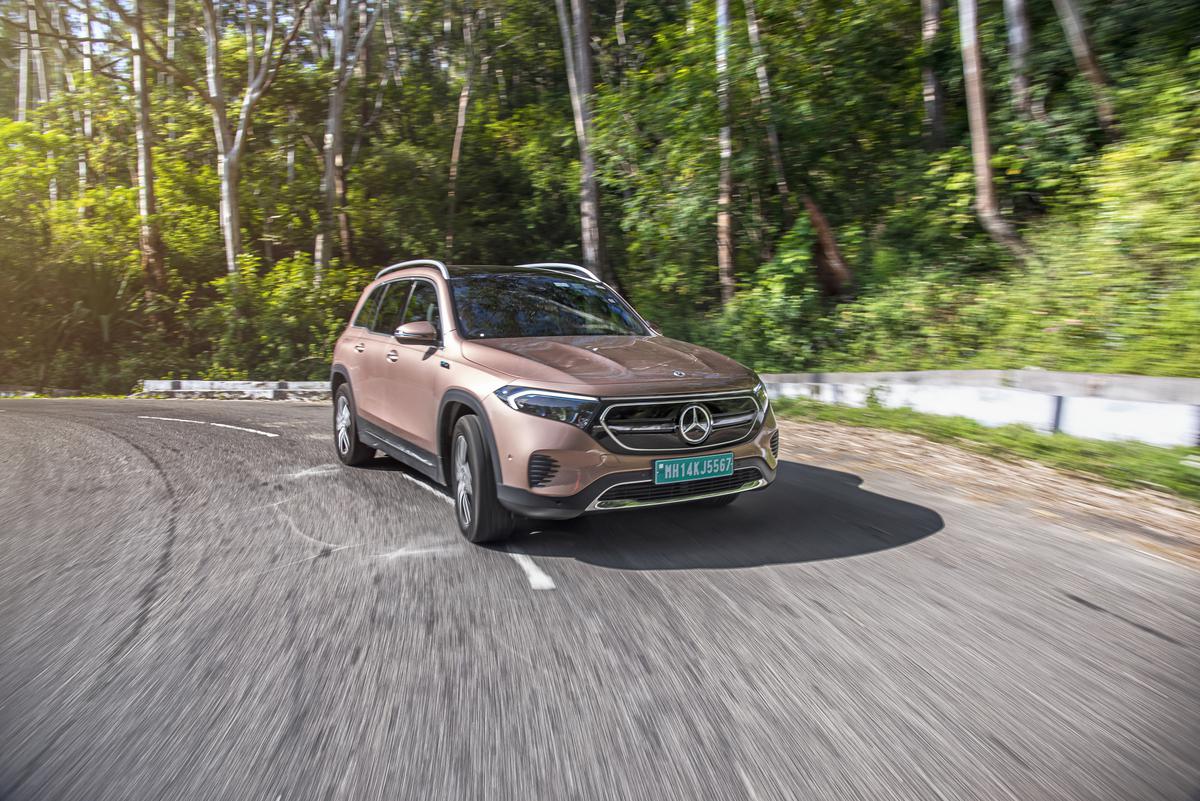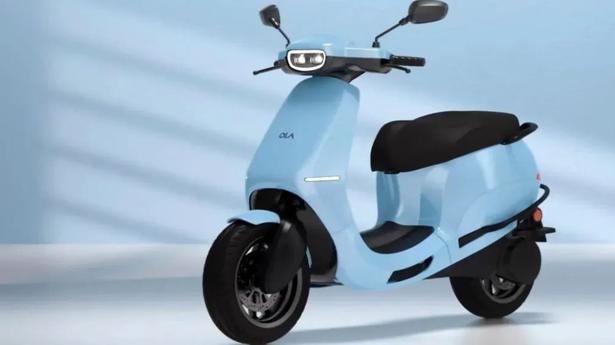The EQB is Mercedes’ third electric car in India. Built on the existing GLB 7-seater’s architecture, it will be Mercedes’ second electric SUV in India. The EQB, however, is a veritable world away from the EQC, Merc’s first and nascent attempt at an electric car. The EQB is not built on a dedicated EV platform and that means there are likely to be some compromises. According to Merc, what the EQB delivers is a more convincing electric luxury car experience, one that has both, a compact profile and seven seats.
The question is, how well does it take to our difficult driving environment. Is it an electric you should have on your shortlist and does it make a convincing case for itself despite being an expensive import? These are some of the questions we answer.
The EQB is clearly based on the GLB. Similar dimensions, near-identical proportions and the same stand-up lines: they are all visible here. That the design works as an EV comes as something of a surprise. The big faux grille up front clearly signals it is an EV, the light bar that stretches across works well and the fact that the front lamps are now slimmer and integrated with the grille adds to the ‘off the future’ look. Not sure Merc should have carried over the wide chin and the big ‘fog light’ enclosures.
The EQB is around 40mm longer than even the GLB, and that is because it has a longer nose! Not normal for an EV. It is also 28mm longer than the GLC. The EQB is also different around the rear, and that is mainly down to the fact that the GLS-like tail-lights have been replaced by a pair of connected lamps and the Merc badge has been moved.
Powering the EQB are twin motors, one at the front and one over the rear axle. The one at the rear is a permanent magnet synchronous motor, which is more efficient and has more torque, and it does most of the work. The one up front is a Tesla-type induction motor and is less efficient, but it makes more peak power and delivers more bang. The motors combine to make 229hp in the EQB 300. Peak torque stands at 390Nm and this, incidentally, is less than on the diesel GLB. Still, max torque here comes in just off idle, and that makes a world of a difference.
The EQB also uses a 66.5kWh battery placed between the wheels and below the rear seat. It comprises lithium-ion pouch-type cells and uses a 400V architecture. WLTP range is 423km and a 10-100 % charge can be done in 6 hours 25 minutes on an 11kW AC charger. A 100kW DC fast charger will be able to manage a 10% to 80% charge in 32 minutes. Estimate around an hour and few minutes on the more common 50kW DC chargers in India.
On the inside, the EQB is similar to the GLB. The dash, instrument panel, screens, vents and even chrome detailing are similar. In an effort to make it look like an electric, the EQB gets a copper tone finish. This is visible on the vents, on the seat fabric, on the key fob, and in a couple of other places. It sort of works well and reminds you this is the electric version. In an effort to provide some differentiation, Mercedes designers have also included what can only be described as a collection of LED lights on the dash above the glovebox. These light up and change colour with the ambient lighting and add an extra dimension of bling to the cabin. The EQB also gets paddles behind the steering wheel that are used to adjust levels of regeneration.
Otherwise, the dash, detailing and build, and fit and finish are similar to that on the GLB. The MFA2 interior architecture is carried over, with the integrated flat instrument panel and touchscreen. The build of the cabin is tough and quality on many of the bits is good, but plastics lower down are not as well built and the touchscreen feels a bit small on a luxury SUV of this price. The EQB also gets a separate EQ menu on the touchscreen where you can access all manner of electric system-related functions. The navigation smartly factors in range and charging options when it gives you directions.

The powered front seats on the EQB also differ from the AMG seats on the GLB. They do not have as much bolstering and are not as snug. The seats are placed at a good height, visibility is good and the cushioning in typical Merc fashion is supportive but slightly firm so that you are comfortable even on long drives.
The seats on the second row are not as comfortable as on the GLB. This is because the large battery placed between the wheels intrudes into the cabin and means passengers on the second row are sat lower than in the GLB. So, despite plenty of legroom and a fundamentally well put together seat, you are sat a bit more knees up than in the GLB. The third row, as on the GLB, is also best suited to children. Access is tight, the seat is very low and there is barely any space for your feet. Also slightly reduced compared to its ICE counterpart is boot space. You have 465 litres with the third row folded versus 500 litres, and that is down to the intrusion of the battery here as well.
Driving the EQB is surprisingly pleasant and enjoyable. In fact, in many ways it is nicer to drive than the GLB diesel. This is due to several reasons. For one, the smooth, strong and responsive manner in which the EQB takes off just feels special. There is no Tesla-like sudden spike of power, no unnecessary urgency, and the relaxed but effortless manner in which it delivers power makes it very endearing and very Mercedes. This makes it easy to drive in start-stop traffic and close gaps when they appear. What also endears the EQB to the driver is that it even pulls strongly at higher motor speeds, with no flattening in the torque curve until much later in the powerband. Performance is also quick and enjoyable – 0-100kph comes up in a claimed 8.0sec and the car can go all the way to 160kph.
Despite having a 469kg battery below the floor, the EQB also rides very comfortably and silently. Ride is, in fact, so good that the EQB rides better than the GLB. The suspension feels supple, it seems to have just the right amount of pliancy for our broken surfaces and then since body control is good and the SUV does not pitch or bob, passengers are comfortable. It even takes to large potholes and sharp-edged bumps well, without too much deflection. Also important is the fact that the EQB has plenty of ground clearance — up to 155mm when loaded. For reference, the EQC had only around 95mm, hence its penchant for making noisy contact with speed breakers. The EQB, we can report, even has plenty of clearance when driven two up.
Turn in is smooth and effortless, the EQB feels surprisingly well balanced and this is even when it is pushed hard into a corner. What seems to help is that the low centre of gravity keeps things stable. Even the steering is linear and consistent, which makes it easy to place the car accurately, even at speed. This clearly is no electric milk float. Whereas the brakes work well when you select medium and strong regen levels, you do need to put effort into the brake pedal if you slack off on the regen totally. And this is especially true on downhill sections when you want to bleed a lot of speed in a hurry without drama. Stronger brakes and better integration are needed here.

The EQB makes a strong impression and is comfortable as a 5-seater, it can seat seven if the rear seats are occupied by teens or children. The range is sufficient and a 11kW AC charger is all you need.
It will be expensive with the expected price nudging ₹80 lakh, even when you compare it to other luxury EVs of its size. And that will get buyers to compare. Still, the EQB has so much going for it and is a well-rounded product, you can expect to really want one, even over the petrol or the diesel GLB. I certainly did.






